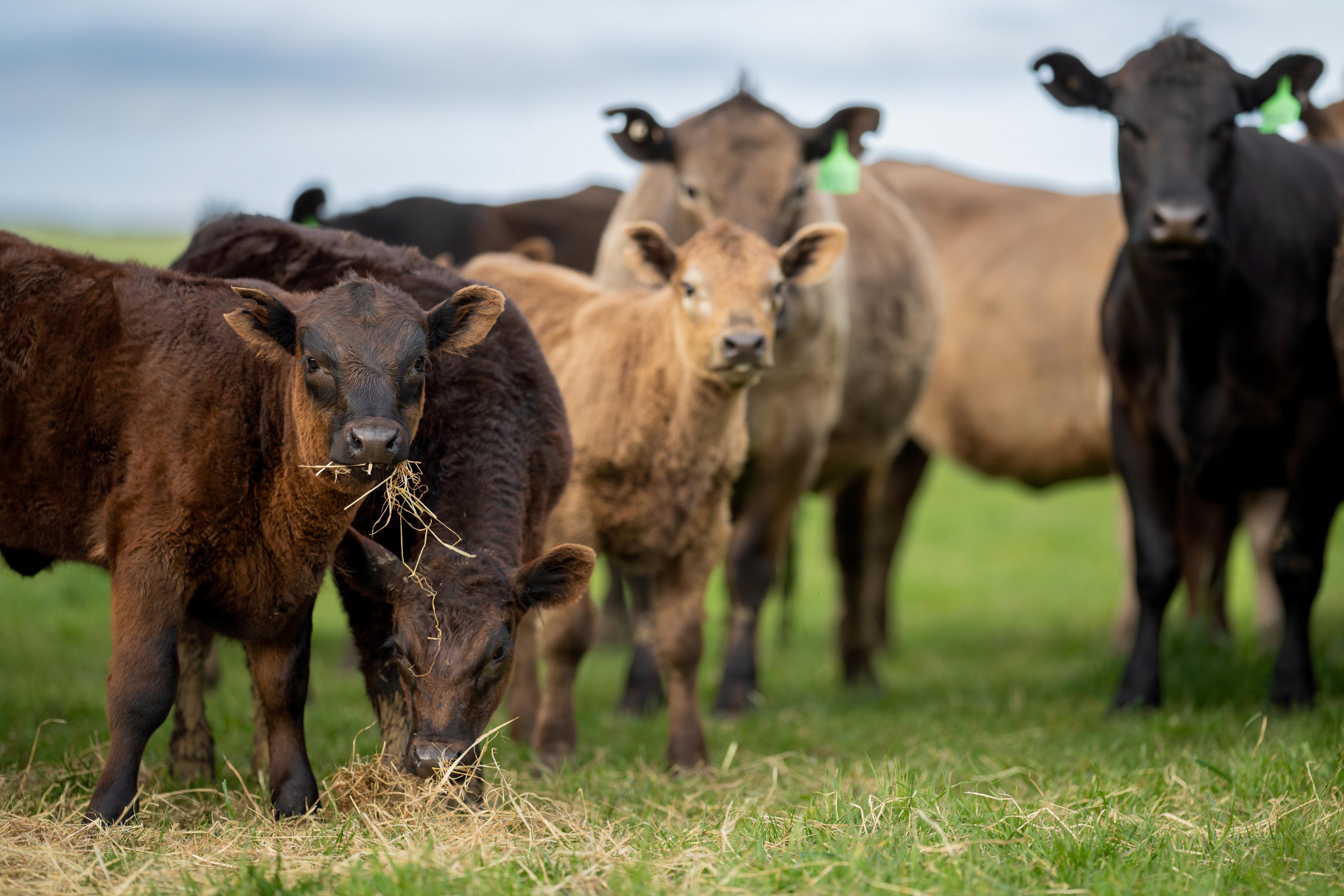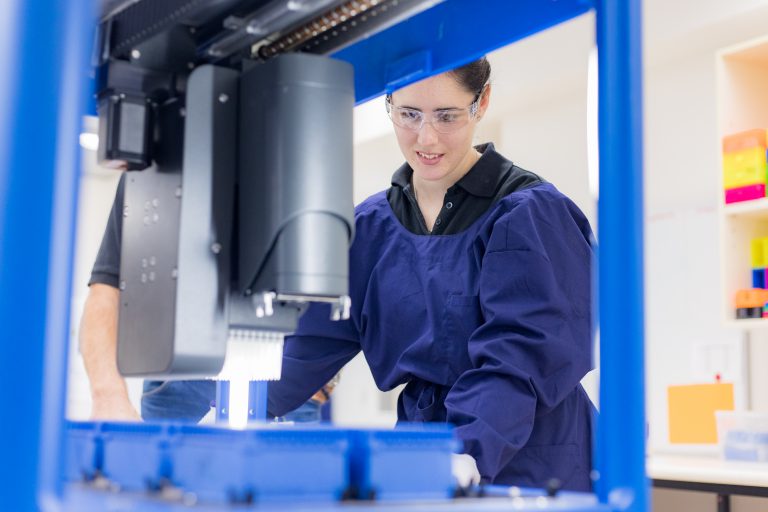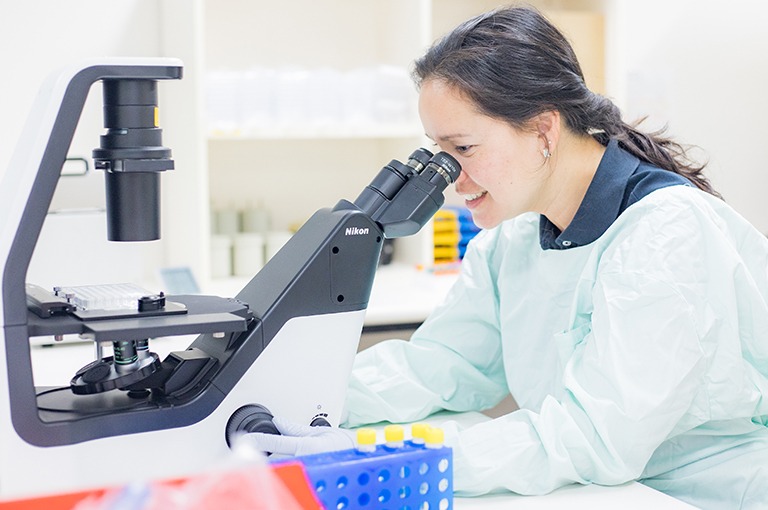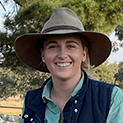
Cattle DNA Testing Australia
Optimise your breeding stock with genotyping. Whether you’re looking to maximise specific traits to increase production, DNA testing puts the data in your hands.
Without genotyping and DNA analysis, too much of the cattle breeding process is left to chance. Certainly, some insights can be gleaned from physical observation and examination, but this doesn’t tell the full story. Our technology identifies important genetic traits that would otherwise go undetected, driving livestock productivity, profitability and sustainability through industry-informed DNA analysis.
As the only wholly Australian-owned and operated livestock genotyping service, we have a unique understanding of the Australian cattle industry and are passionate about strengthening its genetic makeup. Discover how our genotyping services can help improve your herd.
Benefits to your cattle
XytoVet is a leading Australian provider of cattle genetic testing, both for dairy and meat livestock, as well as broader animal genetic testing services. We genotype cattle with a set of standard markers that allows us to accurately determine an animal’s parents. The DNA fingerprint not only allows for parent verification but can also be used for traceability and origin testing of animal products.
- Product-to-plate traceability
- Accurately determine parentage
- Permanent animal identification record
- Improved animal welfare
Cattle Genotyping
At XytoVet, we use ThermoFisher Scientific’s Affymetrix Axiom Bovine Genotyping Array for our Bovine genotyping. This product is an innovative tool that enables genomic and trait selection of beef and dairy cattle, as well as parentage determination.
This array includes over one-thousand markers on the Y-chromosome, where traits associated with fertility are located.
Applications of DNA testing:
- Confirmation of parentage
- Multiple sire mating
- Permanent animal identification record
- Bloodstock and breeding registries
- Semen identity confirmation

Cattle Parentage Testing
DNA technology is the most accurate way to determine animal’s true parentage. Each individual animal has two copies of DNA, one inherited from the dam and one from the sire. In the laboratory, we can distinguish between these two DNA profiles and determine whether a particular sire or dam is the true biological parent.
At XytoVet, we use multiple genetic markers to determine the true parentage. Markers used include some recommended by the International Society of Animal Genetics.
Applications of DNA testing:
- Confirmation of parentage
- Multiple sire mating
- Permanent animal identification record
- Bloodstock and breeding registries
- Semen identity confirmation

Get In Touch
Discover how DNA analysis can drive productivity, profitability and sustainability for your farm. Get in touch with us to learn more about the genetic makeup of your livestock so you can make informed, strategic decisions about your operations going far into the future.
Submit your enquiry about Cattle DNA testing in Australia using the form below, and our friendly team will reach out as soon as possible.

About Us
We pride ourselves on conducting all of our operations, including our testing, in Australia. This avoids arduous international testing turnarounds and means we offer localised expertise and cattle industry knowledge.
- The only 100% Australian-owned and operated DNA genotyping business
- Over 30 years of industry experience in the Australian cattle and broader agricultural industry
- Bespoke solutions to suit the needs of you and your cattle
- Australian leaders in DNA technology and 100% onshore testing
- Dedicated to our customers and sharing our knowledge with them
Discover more ways XytoVet can boost your breeding programs through our range of health diagnostics and analysis capabilities.
Frequently Asked Questions
-
What is cattle genotyping?
This is the process of analysing the DNA profile collected from an animal, either via a hair or tissue sample. We use a standard single nucleotide polymorphism (SNP) marker set, which allows us to develop a comprehensive image of the sample’s DNA profile.
To learn more about cattle genotyping, get in touch with our helpful team today.
-
Why is cattle genotype information useful?
DNA is passed from parents to offspring, making it a central factor in breeding decisions. By genotyping your cattle, you gain access to invaluable insights into their DNA profile. This will allow you to confirm the sample’s parentage, assess the sample against benchmarks derived from proven cattle stock and make breeding decisions accordingly, and ensure full traceability of the sample from birth to market.
Get in contact today to discuss how genotyping could strengthen your herd.
-
Why should I genotype my heifers?
As dairy farmers know all too well, it is not uncommon to have an overabundance of heifer calves. Surplus calves will often be sold off, but how do you know which calves to keep and which to sell? Genotyping your dairy heifers will identify which of your calves have the highest genetic merit, allowing you to selectively retain the best as replacements.
Find out how XytoVet can help you get the most out of your heifers, get in contact today.
-
Why should I genotype my bulls?
Genotyping your bulls allows you to confirm the parentage of your calves. This is of particular importance if you have multiple bulls running with the heifers. Access to this information allows you to make comparisons between your bulls, as well as their offspring, which in turn will allow identification of the samples with the highest genetic merit.
Ready to get on top of your cattle parentage data? Reach out to our friendly team to learn more.
-
What is an SNP?
A Single Nucleotide Polymorphism (SNP) is a common genetic variation that occurs within a DNA molecule. It is a difference in a single letter of the genetic code that makes up an animal’s DNA. For example, one animal may have a “C” at a certain position in their DNA, while another animal may have a “T” at the same position.
SNPs can have important implications for livestock farming, as they can be associated with specific traits or conditions that affect the health and productivity of the animals. By analyzing the DNA of their animals for SNPs, farmers can identify genetic markers associated with desirable traits such as growth rate, milk production, and disease resistance.
The analysis of SNPs can be performed using the ThermoFisher microarrays, which allow for the analysis of thousands of SNPs simultaneously, providing a comprehensive genetic profile of the animal.
By identifying specific SNPs associated with desirable traits, farmers can make informed breeding decisions that optimize the health and productivity of their animals. This can lead to increased profitability for the farm and better quality products for the market.
Overall, understanding SNPs is an important part of modern livestock farming, and farmers who are knowledgeable about genetic testing can use this information to make informed decisions that optimize the health and productivity of their animals. By incorporating SNP analysis into their management practices, farmers can stay ahead of potential health problems and produce high-quality products that meet the demands of the market.
-
What is DNA?
DNA is the genetic material that makes up the blueprint of all living organisms, including animals such as livestock. It contains the instructions that determine an animal’s physical characteristics, behavior, and health.
For farmers, understanding the role of DNA in livestock is important for making informed breeding decisions and improving the productivity of their herds or flocks. DNA can be analyzed to identify specific genetic markers or variations that are associated with desirable traits such as milk production, meat quality, and disease resistance.
By analyzing the DNA of their animals, farmers can make informed decisions about which animals to breed together to produce offspring with desirable traits. This can lead to increased productivity and profitability for the farm.
In addition to identifying desirable traits, DNA analysis can also be used to identify genetic disorders or diseases that may be present in the herd or flock. By identifying these genetic markers, farmers can test their animals for the disease and take appropriate measures to prevent its spread.
Understanding DNA is an important part of modern livestock farming, and farmers who are knowledgeable about DNA analysis can use this information to make informed decisions that optimize the health and productivity of their animals. By incorporating DNA analysis into their management practices, farmers can stay ahead of potential health problems and produce high-quality products that meet the demands of the market.









